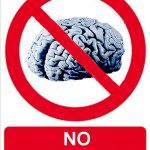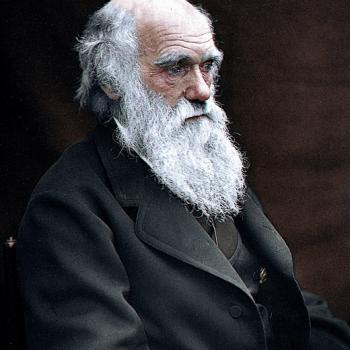The Baptistry, Florecne, Tuscany, Italy, c. 1897. It was constructed between 1059 and 1128 in the Florentine Romanesque style. [Wikimedia Commons / Creative Commons Attribution 2.0 Generic license]
This is from a little Facebook dialogue from March 2013, with William C. Michael (words in blue): I think he is a fellow Catholic.
* * * * *
The danger of all of the Christian energy wasted on political action is that, eventually, it leads to a let-down, as the Crusades led to the Renaissance. We’re not supposed to be exhausting our energy in politics and when we do, the result is moral regression. These laws all flow from the movement that produced a religion-free Constitution, through which human society has regressed. What do you expect from the Constitution? Christian morality?
That’s not the cause. This country preserved Christian morality in law for the most part till 50 years ago. If it was the fault of the Constitution, it took 175 years for the cause to kick in. That makes no sense. I say the cause is the sexual revolution: especially starting with widespread use of the Pill in 1960. That and taking God out of the schools, combined with legal abortion in 1973, and welfare laws that decimated families, is all it took to set the ball well in motion. All that occurred from 1960 to 1973. It took another generation for it to fully cause society and Christian civilization to break down. So we’re there now, and see the crumbling walls all around us. We all live in a moral sewer now.
The Pill wasn’t conceived (haha) and designed by the people who used it. This is all the fruit of the Renaissance, come on. The Founding Fathers had no original ideas.
Checks and balances was semi-original . . . The Pill also brought us abortion, as the legal precedent of the so-called “right to privacy.” It all goes back to that. First you pervert sexuality by this insane separation, then by separating it from childbirth: by slaughtering children. If we have to trace it back hundreds of years, it’s the so-called “Enlightenment” (300 or so years after the Renaissance) and theological liberalism afterwards, that started the ball in motion, slowly . . . not to mention socialism / Communism.
Francis Bacon freed thought from religion and tradition. The “New” Method, replacing the “Old” Method (Aristotle) named “man the measure of all things” after the classical relativism was strangled nearly to death by the Christians. I will go to my grave blaming the post-Christian West on Bacon. I don’t know how any Catholic can’t clearly see that as the turning point.
The Renaissance was within a Christian framework for the most part, whereas the “Enlightenment” was not at all: it was violently anti-Christian and anti-science also.
I’d argue that they were equally anti-Christian, only that one was nearer to the point of departure than the other, like Harvard in 1860 and Harvard in 1960.
No; you can have “man is the measure of all things” but under God, as a steward of His creation, which is entirely Christian, or “man is the measure of all things” without a God, which is wicked and leads to Communism, Nazism, and abortion-on-demand. The first is the Renaissance; the second the “Enlightenment” and classical Marxism leading to Communism.
The problem is that the “renaissance man” who was the measure of all things was already leaning away from God. Yes, there are exceptions like Thomas More and Erasmus, but they are not representative of the spirit of the age. They, like Dante, were transitional figures.
Any good thing can be distorted by Satan for his ends, too; hence, the Renaissance might be seen as good but later distorted and taken in a secular / atheist direction. Or we can see it as rotten to the core. I just don’t see the latter. Parts of it were secular, but as a whole, no. For example, Scholasticism was distorted and twisted by the nominalists . . .
Yes, but we don’t try to suggest that nominalism was “under God”…it was aversion to the truth that already was known and taught, as I’d argue the Renaissance was. The good in the Renaissance was inherited from what preceded it, as in Anglicanism or Puritanism. What it brought to the world was bad because what was better was being abandoned.
I think that is because things are taken to the extreme by men. So if the Renaissance says, “man is good, too [and promotes art, science, architecture, etc.] — under God; made in His image” that is distorted to saying that man is the center of everything, without God. It’s the difference between the emphasis of a formerly neglected thing, and making the emphasis the be-all and end-all.
I would argue that that is not a consistent development of Renaissance thought, because God had to be in there and couldn’t be taken out. It’s a corruption and distortion of it; whereas atheism, Marxism, and the moral rot we see today are perfectly consistent with the antinomian, violent, mob-run, viciously anti-Catholic “Enlightenment”.
[someone else observed] I have to wonder if a large part of my own prejudice against the Renaissance is rooted in the post-Enlightenment framing of it by historians, scholars, etc. – the concept that the medieval period was a barren wasteland, and suddenly, during the Renaissance, God was slowly shrugged off and there was a rebirth of smart people.
Yes; clearly, secularists use it in that way, so that in hindsight many see it as a “bad” thing on the road to agnosticism, secularism, and atheist supposed “enlightenment.”
That strongly influences how we view it. In truth it was a mostly Catholic revival of culture, that became corrupted by the devil and some folks, and co-opted, complete with the usual revisionist history brought in as an aid towards that end.
Scholasticism was one Catholic revival of learning and culture, the Renaissance another and different one. I don’t see that they have to be opposed at all. It’s simply secular society never giving Christianity (and above all, Catholicism: the root of all evils!) credit for anything; just as we’re given no credit for our central role in the rise of modern science (or universities, or hospitals, etc., etc., etc., ad infinitum), either.
***
***













